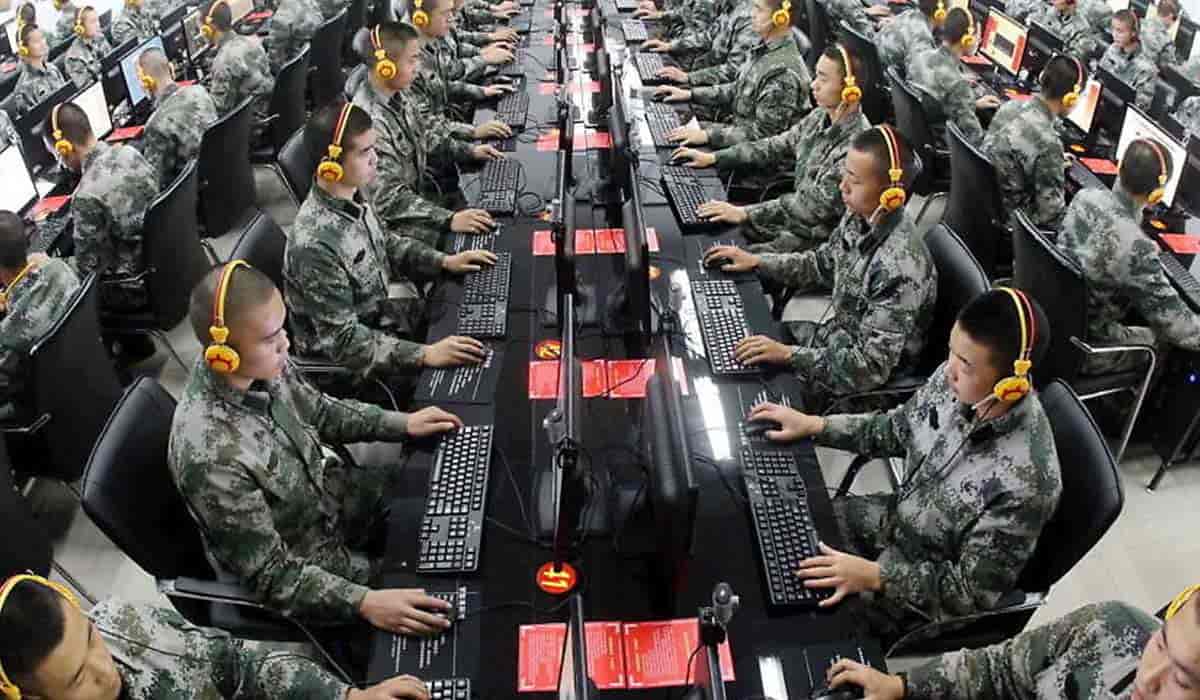

The "sophisticated" hackers were linked to universities in China. They were able to see some of the stolen documents which included classified material about Indian missile systems, security in several Indian states, confidential embassy documents about India's relationships in West Africa, Russia and the Middle East, NATO forces travel in Afghanistan, and a years worth of the Dalai Lama's personal email.

The same researchers discovered a second cyberspy network in 2010. Computers penetrated include those of the Dalai Lama, Tibetan exiles, organizations affiliated with the Dalai Lama in India, Brussels, London and New York, embassies, foreign ministries and other government offices, and focus was believed to be on the governments of South Asian and Southeast Asian countries. Chinese hackers had gained access to computers possessed by government and private organizations in 103 countries, although researchers say there is no conclusive evidence China's government was behind it. Evidence led to the discovery of GhostNet, a large cyber-spy network. In 2009, Canadian researchers at the Munk Center for International Studies at the University of Toronto examined the computers at the personal office of the Dalai Lama. In the aftermath of the Shadow Network computer espionage operation security experts claimed "targeting Tibetan activists is a strong indicator of official Chinese government involvement" since private Chinese hackers pursue economic information only. Several cases of computer intrusions suspected of Chinese involvement have been found in various countries including Australia, New Zealand, Canada, France, Germany, the Netherlands, the United Kingdom, India and the United States.

The United States believes the Chinese military has been developing network technology in recent years in order to perform espionage on other nations. judge dismissed all charges against her due to prosecutorial misconduct. One known exception to this rule is the case of Katrina Leung, who was accused of starting an affair with an FBI agent to gain sensitive documents from him. Much of the information available to the public about the Chinese intelligence services comes from defectors, whom the PRC accuses of lying to promote an anti-PRC agenda. Article 14 of China's 2017 National Intelligence Law mandates that Chinese intelligence agencies "may ask relevant institutions, organizations and citizens to provide necessary support, assistance and cooperation." Honey trapping and kompromat are also common tools of Chinese intelligence services. The use of non-traditional intelligence assets is codified in Chinese law. It is generally believed that Chinese intelligence agencies operate differently from other espionage organizations by employing primarily academics or students who will be in their host country only a short time, rather than spending years cultivating a few high-level sources or double agents. It is believed that Chinese espionage is aimed at the preservation of China's national security through gaining commercial, technological, and military secrets. Seal of the Ministry of State Security (China) The United States alleges that the degree of intelligence activity is unprecedented in its assertiveness and engagement in multiple host countries, particularly the United States, to which various US officials contend economic damages, prosperity and stolen innovations have resulted in $US320-445 billion annually since its inception and activities. The Chinese government is also engaged in industrial espionage aimed at gathering information and technology to bolster its economy, as well as transnational repression of dissidents abroad such as supporters of the Tibetan independence movement and Uyghurs as well as the Taiwan independence movement, the Hong Kong independence movement, Falun Gong, pro-democracy activists, and other critics of the Chinese Communist Party (CCP). It employs a variety of tactics including cyber espionage to gain access to sensitive information remotely, signals intelligence, human intelligence as well as influence operations through united front activity, especially the co-optation of ethnic Chinese diaspora communities and associations. The Government of China is engaged in espionage overseas, directed through diverse methods via the Ministry of State Security (MSS), the Ministry of Public Security (MPS), the United Front Work Department (UFWD), People's Liberation Army (PLA) via its Intelligence Bureau of the Joint Staff Department, and numerous front organizations and state-owned enterprises.


 0 kommentar(er)
0 kommentar(er)
